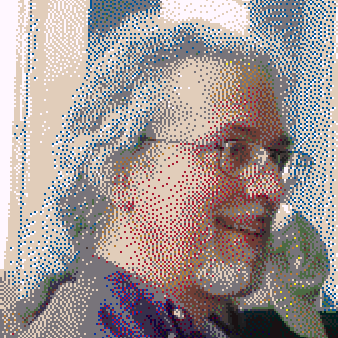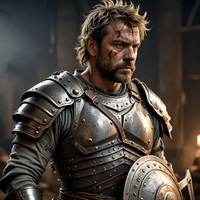This kind of thinking is wasteful. Every d20 has a finite lifespan. It was created, and it will, at some time in the future be destroyed, as all things are. That means it has a finite number of rolls in its lifetime, with an equal distribution of all possible outcomes. When you “practice roll” and get a nat 20, you have wasted one of the limited number of nat 20s that die has in it. Think of the 20s. Don’t practice roll.
This is like a common house fly worrying about the lifespan of Cthulhu.
You haven’t seen how some of the folks I play with roll.
And of course the traditional sentence for dice which misbehave one too many times.

i assume revenge for stepping on a d4 once?
D4 is the devil’s dice.
I thought that was the d8. At least the 4 is flared at the base
So it can stab you better.
Maybe the real Cthulhu was the impossibly mind-breaking irrational thought experiments we subjected ourselves to along the way! :D
deleted by creator
I try hard to only roll my old fair dice on felt (in the past) or plastic (since 3d printers). They work by having hard corners, those wear down making the dice less fair when rolled on surfaces harder than ABS
I guess if your dice were pre worn by polishing you can’t make them worse, and fair polyhedric dice are pretty much no longer available
Online dice simulators are probably fairer still
On the contrary, it will not be the number of rolls that destroys it, but being thrown away. You should roll it as much as you can before then, any time spent not rolling is time wasted!
That’s stupid. But obviously how the dice strikes the table impacts its balance and therefore the probability of rolling specific numbers. So we must figure out what side need to strike the table first to decrease the probability of getting an undesirable roll. Boom, I out physicsed you’re probabilities.
I did this with d6. I am a master at rolling low, cursed you may say but if I pick up a 1 the chance of rolling another one is lower. Or at least in my mind and memory.
Louis Zocchi - The guy who made fair polyhedral dice - reckoned the problem is that polyhedral dice become unfair through the edges being rounded so they roll more easily from some sides than others and they become less than square/round
Besides, everyone knows you play the long game of training your dice by always resting them with the high value up.
It probably does nothing, but maybe the atoms shift over time and it warps just a bit and rolls better.
After like three 20s I can’t roll over 10 I need better dice. Or better luck.
The funny thing is that this logic assumes the rolls are independent (so you can just multiply probabilities), but the definition of independence is that past rolls can’t affect future ones. So basically it’s saying that past rolls can’t affect future ones and therefore they must.
How did you manage to spell the same word differently in the same sentence?
Ai probably
Where did they get an AI that managed to mess up “roll” as “role” twice in the same page? Humans do it because they sound the same, but AI doesn’t know how they sound. The AI knows that sometimes people say “role” instead of “roll”, but they’re generally set to raise the probability of a token to some power, and since most people spell “roll” right, they’re even more likely to. And they also generally have a post-training step where they’re trained to spell stuff right and that sort of thing. And they don’t even need to be trained on that specifically, since some people spell better than others, so they can understand the general concept of good vs bad spelling.
The die need to warm up. I have to practice my release to make sure of a good number. Don’t take this from me.
Me every time I think about this.

Math
deleted by creator
Ok. I know that this isn’t correct… But isn’t it?
If you’re having an unlimited number of rolls prior to your “real” roll, then you would be, in essence, creating a situation that has a statistically lower chance of happening.
No. You have a five percent chance of rolling any given number on any given roll on a twenty sided die.
A properly weighted die
Okay, normally, sure. But what if I cross my fingers and kick my heels and rub my lucky clover?
I don’t know but if you rub my lucky clover you’ll get a little squirt of luck.
then it’s 4% each result. you don’t want to know what happens with the missing 20%.
That’s unlikely on a D20. They’re almost all polished in rock tumblers which leaves edges rounded to random radiuses and faces all different sizes
That’s true of all sizes but matters more on the dice with more faces
On most dice rolling a 1 or 20 or 12 indicates that that number is probably more likely than others to come up
Some dice are worse than others, reportedly the TSR red box d20s were egg shaped with 1 and 20 on the ends making those numbers highly unlikely
Before you roll any dice, the chances of rolling two nat 1s are 1/400. But after you roll your first die, whatever it happened to be, your chances of rolling a nat 1 are 1/20. The chances of the entire scenario have no impact on the probability of the individual rolls
@FearfulSalad @brian
The Gambler’s Fallacy even shows up in humor.Hitchhiker: “thank you, but aren’t you even a little worried picking up hitchhikers?”
Driver: “nah bro, the odds of a car having TWO serial killers is too tiny to worry about.”
My mother used to tell me there was always one weirdo on every bus. I couldn’t find them.
hah, nice!
that reminds me of the Poker adage: if when you sit down you can’t identify the pigeon (sucker, etc) to be fleeced, it’s you.
Right but the way I took the meme was that you would roll until you get a 1, then deciding the next roll is the “real” one.
That’s what the meme says, but probability doesn’t work that way. If you want the result from a roll, what you’ve roller before has no bearing on the result from this roll. Thus the chance for a single d20 roll is always 1/20, or 5%.
brian@lemmy.ca The die doesn’t know it just rolled a 1. History doesn’t matter to it.
Short version, two coin flips. There are 4 options:
HH, HT, TH, TT
So there’s two chances to get one Tails and one Heads, out of 4, so 2/4 = 1/2, half the tosses. Then 1/4 on each of HH and TT.
So rolling one Tails is more likely than rolling two.
But once you’ve flipped the first coin, it’s “locked in”. If it was Heads, the only options left to you are HT and HH. The fact that there could have been a T that, if flipped first, would land us in TH is irrelevant fantasy. We’ve got the H, and all that’s left is HT or HH, even odds.
Dice are the same. What makes a double 1 rare is that you have to roll 1 specifically and only two times to get there, whereas a single 1 can be first or second, and the other number can be any of the other 19 other numbers. It’s the duplication of different results we consider “the same” that make one thing more likely. But once you’ve already rolled a 1, none of that matters anymore. Now it’s just 20 numbers, each equally likely. We’re locked in.
The standard answer is that the odds of the first roll don’t change the odds of the second roll, the second roll still has a 1/20 chance of a 1, no matter what the first roll is.
The more thorough answer is that it’s a misunderstanding of what probabilities are. Yes, there’s a 1/400 chance of rolling 2 1s, but by the time you roll the first die and get a 1, you’re not talking about that problem anymore. You’ve introduced new information to the problem, and thus have to change your calculation. There’s a 1/20 chance of rolling 2 1s after you’re already rolled one. Let’s calculate it…
So, there’s 400 ways 2 dice can fall, yes, and there’s only 1 way that they can both fall on 1. However, there’s 20 ways that the first die can fall on 1, one for each possible fall of the second die. So, when we say that that has already happened, we have to eliminate 380 of those 400 die rolls, those are no longer possible. That leaves us with only 20 ways that the second die can fall, and only 1 of those is a 1. So the odds of rolling a on the second die, after already rolling a 1 on the first die is 1/20.
We can also calculate it differently. What are the odds of the second die falling on 1? Cause that’s the one we care about, really. And there’s 20 ways that can happen, one for each possible fall of the first die. So the odds of the second die falling on 1, when rolling 2 dice is 20/400, or 1/20.
If you’re having an unlimited number of rolls prior to your “real” roll
You’d end up with a perfectly smooth D20 which would never stop rolling, assuming it was rolled in a vacuum.
If I roll out all the bad numbers first, I’ll only have good numbers when it counts!
Actuality: Every bullshit nonsense joke roll comes up 18-20, while every roll in the climatic finale combat scene is 1-4.
Gotta get the unlucky out of my system first.












